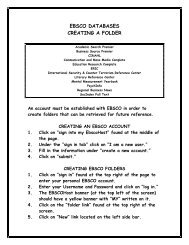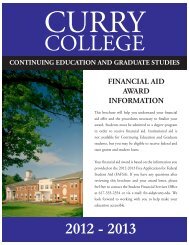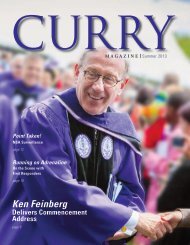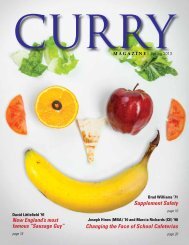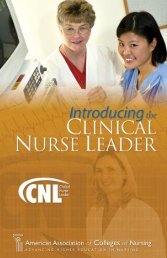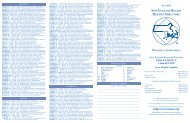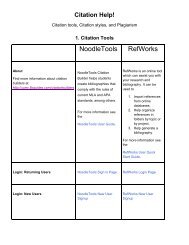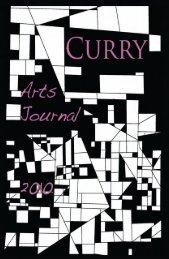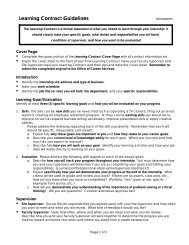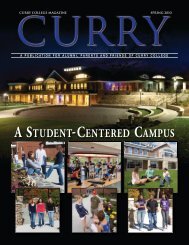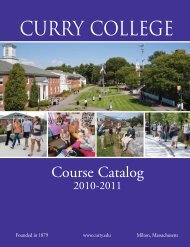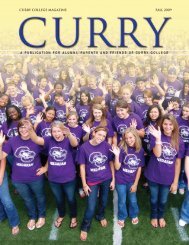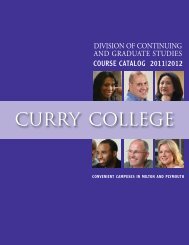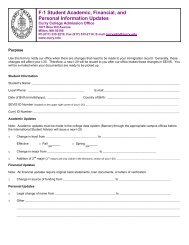Read the Curry College NEASC 2012 Self-Study Report.
Read the Curry College NEASC 2012 Self-Study Report.
Read the Curry College NEASC 2012 Self-Study Report.
You also want an ePaper? Increase the reach of your titles
YUMPU automatically turns print PDFs into web optimized ePapers that Google loves.
58<br />
programs are described in detail in <strong>the</strong> Student Handbook, <strong>College</strong> Catalog, <strong>College</strong> website and<br />
departmental brochures. The extensive resources for academic assistance include <strong>the</strong> Academic<br />
Enrichment Center, Program for <strong>the</strong> Advancement of Learning (PAL), Speaking Center, Advising<br />
Center, Academic Success Coordinator, <strong>the</strong> Office of Disability Services, and Career Services.<br />
The Academic Enrichment Center (AEC) provides peer and professional content tutorial services<br />
to traditional, continuing education, and graduate students, including assistance with writing,<br />
organization and time management skills, and study strategy development. Faculty recommend<br />
students to serve as peer tutors who <strong>the</strong>n enroll in a structured training course led by AEC<br />
faculty. Tutoring is available in most subject areas. Courses identified as “high risk” are targeted<br />
for staffing and include those with past histories of requests for supplemental instruction or a<br />
high percentage of D/F grades. A summary of recent tutorial support activities is available in <strong>the</strong><br />
workroom. cxxxiii Student support for developing oral communication literacy includes <strong>the</strong> <strong>Curry</strong><br />
Speaking Center, a peer‐based and faculty led center that provides individualized instruction,<br />
videotaping of oral presentations, and structured feedback for improving oral communication<br />
skills. cxxxiv<br />
Beyond academic support, many student services are offered through <strong>the</strong> Division of Student<br />
Affairs. They include Residence Life, Student Activities, Orientation, <strong>the</strong> Fitness Center,<br />
Intramurals, <strong>the</strong> Student Center, Disability Services, Alcohol/Wellness programming, Spiritual<br />
Life, Student Conduct expectations, Public Safety, Counseling, Health Services, and Food<br />
Services. Complete descriptions, means of contact with each area, and information about<br />
availability of services are provided online, during Accepted Students’ Day and Orientation<br />
workshops, and in print. cxxxv<br />
<strong>Curry</strong>’s varsity athletics programs, including fourteen intercollegiate teams (Division III) and a<br />
cheerleading squad, report directly to <strong>the</strong> President of <strong>the</strong> <strong>College</strong>. The <strong>College</strong> maintains an<br />
extensive website describing each team, as well as <strong>the</strong> overall philosophy and integrity<br />
expectations of student athletes. Academic expectations are clear as well: students who<br />
participate in intercollegiate athletics are held to <strong>the</strong> same standards as non‐athletes in both<br />
academic and student life matters and must remain in good academic standing. A growing<br />
intramural program provides co‐curricular activities that connect students with one ano<strong>the</strong>r<br />
o<strong>the</strong>r and <strong>the</strong> campus community. cxxxvi With <strong>the</strong> new space available in <strong>the</strong> Student Center and<br />
<strong>the</strong> increase in dedicated staff, <strong>the</strong> intramurals program has grown significantly. Programs<br />
including basketball, flag football, floor hockey, golf, indoor soccer, softball, tennis, volleyball,<br />
and Zumba drew more than 438 individual participants in <strong>the</strong> Spring 2011.<br />
<strong>Curry</strong> students are afforded multiple opportunities for student leadership and participation in<br />
campus organizations and governance. These include: Resident Assistants, Orientation Leaders,<br />
Student Ambassadors, Student Government Association members, Student‐Athlete Captains,<br />
Residence Hall Council members, Teaching Assistants, Peer Educators, Peer Tutors, Peer<br />
Advisors, and Student Club Executive Board members. Training and preparation for <strong>the</strong>se roles<br />
is extensive and, in some cases, supported with credit‐bearing course work related to student<br />
development <strong>the</strong>ory and educational practice. A new course piloted in Spring 2011 focuses<br />
<strong>Curry</strong> <strong>College</strong> <strong>2012</strong> <strong>Self</strong>-<strong>Study</strong><br />
Standard Six



